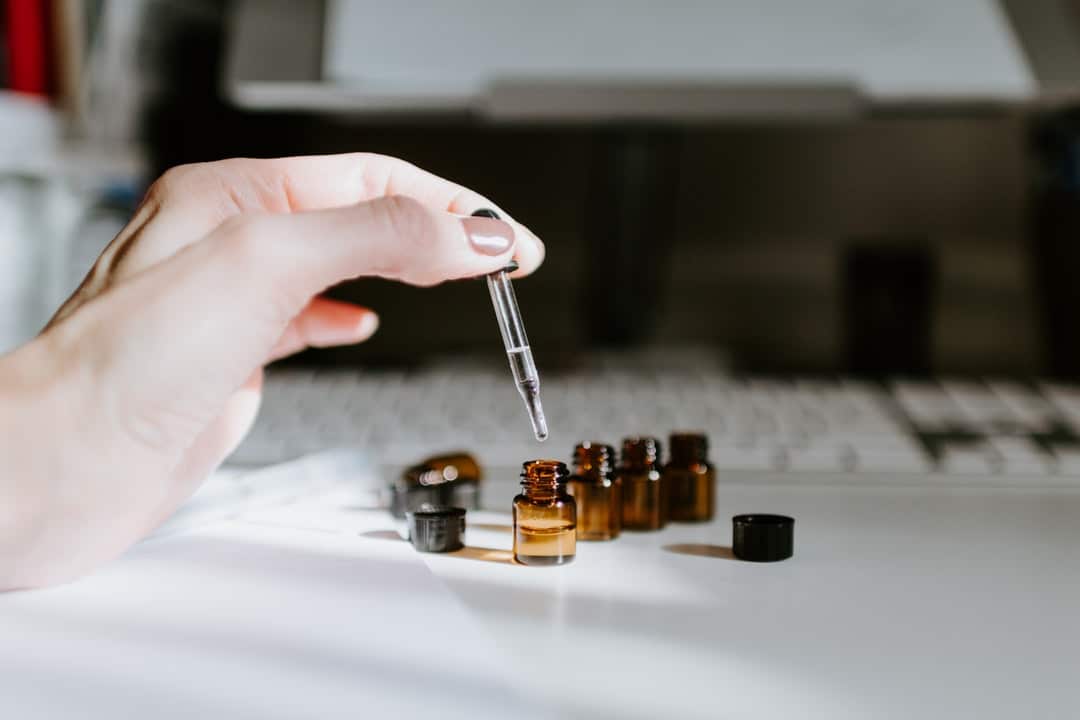There always seems to be another health or natural beauty fad wafting around the corner. Essential oils and their place in the world of fragrance seem to be one of those.
In the past ten years, the essential oil market has grown over 200% in the United States. That’s enough to make you re-think how you’re using fragrance oils in your day-to-day routine.
Essential oils vs. fragrance oils– can they compete? What are the benefits of one over the other? Keep reading– we’ve got you covered with all of the sweet-smelling details.
What Are Essential Oils?
Essential oils are concentrated oils extracted directly from aromatic plans. If created properly, they are not diluted and do not contain any additives.
Essential oils have been around for hundreds of years. They’re often used for aromatherapy, meditation, and for medicinal purposes.
Benefits of Essential Oils
The scientific health benefits of essential oils are still up for debate. However, the most common general benefits include:
- Mood-boosting
- Reducing stress
- Improving sleep
- Killing bacteria, viruses, and fungi
- Reduce inflammation
- Manage anxiety
- Help with nausea
- Headache treatment
Most serious essential oil users use specific oils to target certain ailments. Benefits specific to the plant type include:
- Lavender – anxiety treatment, stress relief, and insomnia support
- Jasmine – mildly calming, used to ease anxiety
- Orange – naturally improves mood and happiness, supports anxiety
- Sandlewood – increases mental clarity and focus, improves the quality of sleep
- Chamomile – benefits sleep and may have an anti-depressant effect
- Tea Tree – improves immunity and fights infections in the body
- Bergamont – improves circulation and energy in the body, can support anxiety
- Peppermint – good for digestion and the release of muscle tension, can boost energy levels
- Rose – lifts mood and helps to manage stress
For quick information, take along an essential oil pocket reference. You never know when you might need to double-check your oils against a verified reference guide. Make sure you understand what essential oils are safe for kids, and what their benefits may be!
What Are Fragrance Oils?
Alternatively, fragrance oils are manufactured to produce a specific smell. Even if they’re considered to be “natural,” all fragrance oils are man-made in a lab.
Synthetic Fragrance Oils
Fragrance oil is “synthetic” if it is made from artificial chemicals not found in nature. Manufacturers often choose to make synthetic fragrance oils because they tend to last longer than natural products.
The chemicals found in synthetic fragrance oil can be made with as many as 80 chemical ingredients. If you have skin or fragrance sensitivities, these types of cosmetics or perfumes can cause reactions or health problems. You can identify a synthetic fragrance oil in a product by looking for words like “perfume,” “fragrance oil,” “parfum,” or “fragrance” on labels.
Natural Fragrance Oils
Not all fragrances are made equal. Natural fragrance oils are made by isolating actual components of natural fragrance to develop a scent. Though still man-made in a lab, they can often be better for those with certain sensitivities or with allergies.
Common Use for Fragrance Oils
The use of fragrance oils in products is not a new practice. Since the 18th-century invention of eau de Cologne, the perfume industry has thrived. Common uses include:
- Scented candles
- Scented soaps and creams
- Scented massage oils
- Deodorizing room spray
- Scented lotion
- Rollerball fragrances
- Car air fresheners
- Scented laundry detergent
- Scented bubble baths
- Perfume and colognes
If you’ve imagined a yummy-smelling scent, it’s likely that it’s been made into a fragrance oil at some point. They are sometimes named for experiences or items that do not have a smell in real life, but still evoke associations in the brain. Common scents for fragrance oils include:
- Apple cinnamon or pie
- Floral
- Tobacco
- Cedar
- Birthday cake
- Cotton candy
- Sweet rose
- Candy cane
- French vanilla
- Chocolate
- New car smell
- Lavender
- Peppermint patty
- Pine forest
- Sea breeze
- Forest
- Spiced Orange
- Blackberry
- Strawberries and cream
It’s pretty common for people to find a scent that they love and to stick to it for years. This is true for perfumes, laundry detergent, hand soap, candles, etc.
Essential Oils vs. Fragrance Oils – Pros and Cons
When should you use one over the other? It depends on your priorities.
The main difference between essential oils and fragrance oils is that essential oils are made of natural plant compounds. Fragrance oils, while often made with “clean” ingredients,” are manufactured in a lab. The difference is in the ingredients.
While fragrance oils contain aromatic plant parts, they are mostly synthetic compounds. This makes essential oils a great choice for those trying to avoid artificial ingredients in their beauty products.
The shelf life of fragrance oils is also much shorter than essential oils. Typically, fragrances should not be kept longer than 6-12 months. You can tell that fragrance oils have gone bad if the consistency has changed, or if they have begun to give off an unpleasant smell.
Essential oils, on the other hand, can last between 2-15 years.
There are no medicinal benefits to fragrance oils, though they are generally less expensive than essential oils. This is because they are cheaper to produce and are readily available in most of the products that we buy.
The Right Choices For Your Lifestyle
So– fragrant fad or clean beauty swap? We hope this essential oils vs. fragrance oils guide helps you make the right choice for your lifestyle.
Your best life extends beyond a perfume counter. For more health and fitness-related tips, check out the rest of our blog.

